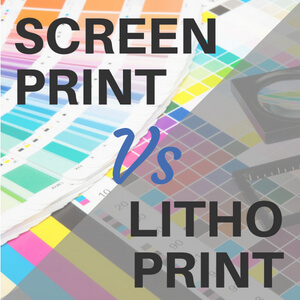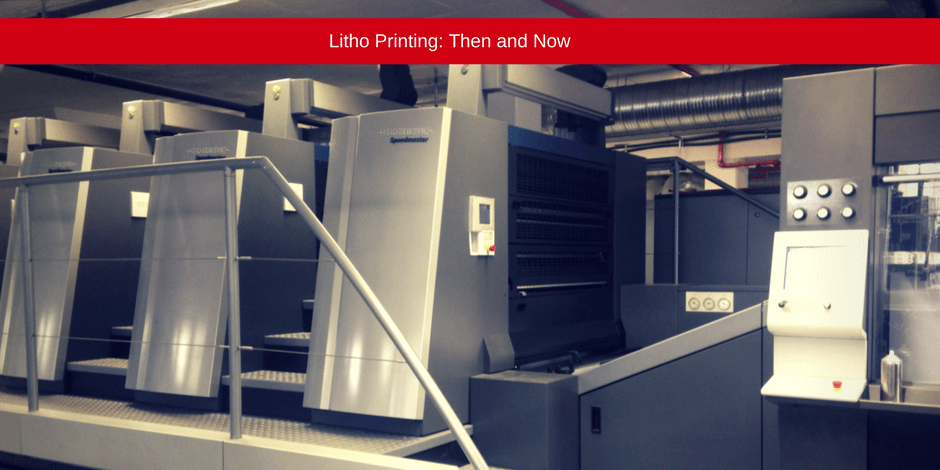A Comprehensive Guide to Recognizing Litho Printing Strategies
The world of litho printing, a strategy originating from the late 18th century, is an interesting blend of background, art, innovation and science. Stay with us as we journey right into the fascinating world of litho printing.
The Historic Advancement of Litho Printing
The historic trajectory of litho printing, a crucial innovation in the world of communication, is a fascinating tale of human ingenuity. The procedure developed with the advent of the rotating press, which substantially raised efficiency. Each phase of litho printing's evolution showcases mankind's ruthless quest of performance and high quality in visual communication.
Deciphering the Scientific Research Behind Litho Printing Inks
Moving on in the exploration of litho printing strategies, the emphasis currently shifts to the scientific research behind litho printing inks. The structure of these inks, their drying out process, and shade mixing techniques develop the backbone of this complex art form. Comprehending these aspects is essential to mastering the craft and accomplishing the desired print results.
Make-up of Litho Inks
In lithographic printing, the basic function of litho inks can not be overemphasized. Pigments, the color-providing elements, are finely ground fragments suspended in the lorry, a fluid that carries the pigment onto the printing surface. Each element plays an important part in the final print's top quality, making the exact solution of litho inks a detailed science.
Ink Drying Refine
From the structure of litho inks, interest turns to the fascinating procedure of ink drying out. The drying out procedure is crucial, as it impacts the final print's top quality and durability. Two key techniques are made use of in litho printing: oxidative drying out and absorption. Oxidative drying out includes the ink reacting with oxygen in the air to develop a hard, completely dry film. This technique offers a durable surface, yet can be slower compared to absorption. Absorption, on the other hand, involves the ink permeating right into the paper fibers, which is a faster procedure but can cause less vivid colors. The option in between these techniques depends on factors such as print rate demands, the paper kind used, and the desired surface.
Color Combining Strategies
While the drying out procedure plays a vital role in litho printing, the science of shade mixing strategies holds equal relevance. This is a complex process that involves the mindful blending of primaries: cyan, magenta, and yellow, in differing percentages to achieve a wide selection of colors. The addition of black ink, referred to as 'vital', helps in managing the strength and deepness of the shades. The science behind litho printing inks likewise thinks about the transparency of the ink, which affects just how shades overlay and mix. To attain an efficient shade mix, print experts must additionally recognize the complexities of ink behavior, shade theory, and the physical residential properties of the substratum on which the ink is applied.
The Art and Style Components in Litho Printing
Litho printing takes a breath life right into art and style with its distinct elements. Litho printing suits a variety of colors, allowing musicians to develop lively and dynamic prints. This mix of accuracy and adaptability makes litho printing a preferred option for many artists and developers.
Modern Applications of Litho Printing Strategies
Litho printing methods have actually located substantial use in the modern commercial sector. Its impact and relevance continue to grow with the advent of new advancements and modern technologies in the field. This area will certainly check out these contemporary applications and the transformative function they play in the printing market.
Industrial Litho Printing Makes Use Of
In today's electronic age, one could question the significance of typical printing methods. Litho printing stays a crucial component of the informative post business sector. High-volume printing tasks, such as the production of books, newspapers, and packaging, depend on litho printing for its capacity to provide premium image top quality and price performance. The process, which includes transferring a tattooed image from a plate onto a rubber blanket and then to the printing surface area, offers unrivaled consistency. This makes it suitable for jobs requiring a huge print run. Litho printing likewise provides a broad shade range, remarkable to that of digital printing. This makes it the best choice for tasks that demand my link lively, high-grade shade recreation.
Advancements in Litho Printing
Pushing the borders of conventional techniques, contemporary advancements have fueled a host of developments in litho printing. One noticeable development is electronic litho printing, which integrates the merits of electronic technology with litho's high-quality output. These advancements emphasize the enduring importance of litho printing in the contemporary globe.
Exploring the Process of Litho Printing: Action by Step

Challenges and Solutions in Contemporary Litho Printing

Despite the precision and custom that litho printing proudly supports, it is not without its set of contemporary challenges. Digital litho printing allows for affordable short runs and easy customization, addressing the issue of variable information. Thus, while there are obstacles, the litho printing sector is proactively adjusting to satisfy them head-on, ensuring its relevance in the future.
Verdict
Finally, litho printing, with its abundant history and scientific intricacies, holds a substantial area in the print industry. As the overview exposes, it's a synthesis of art and innovation, with modern advancements guaranteeing its significance. The market faces obstacles that need innovative remedies, with an emphasis on automation and sustainability. The future of litho printing hinges on its capability to adjust to these transforming needs, affirming its enduring value in a progressing market.
